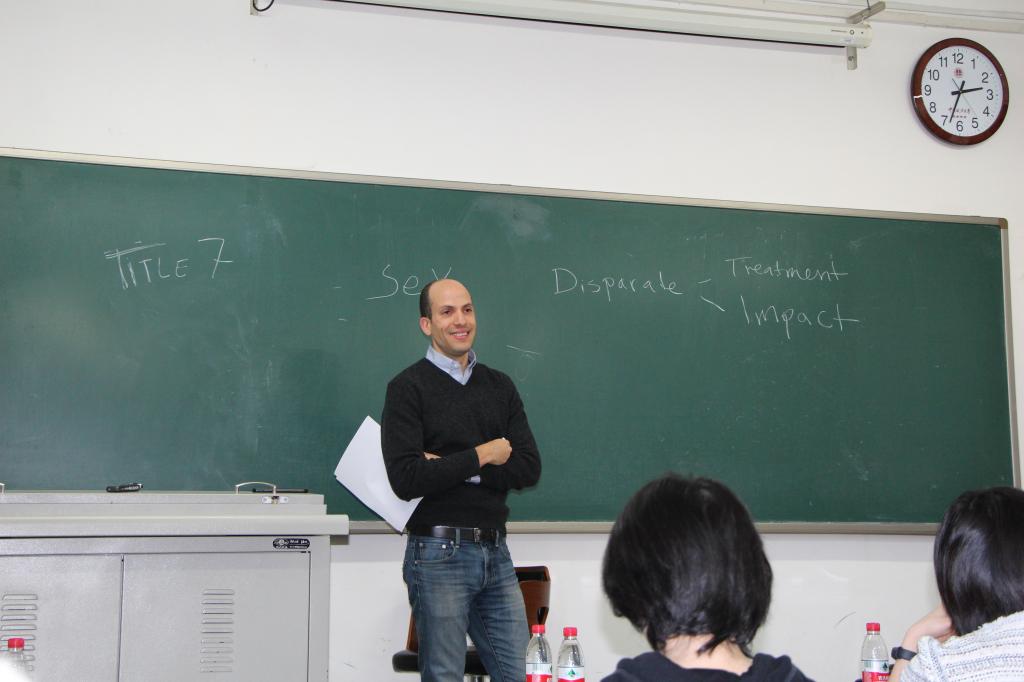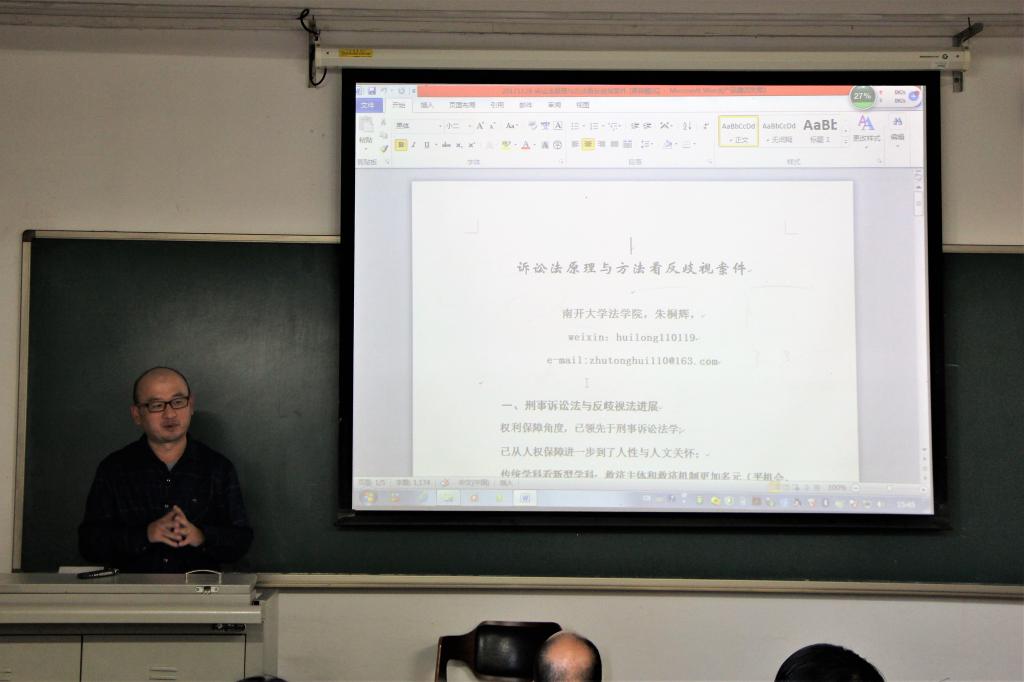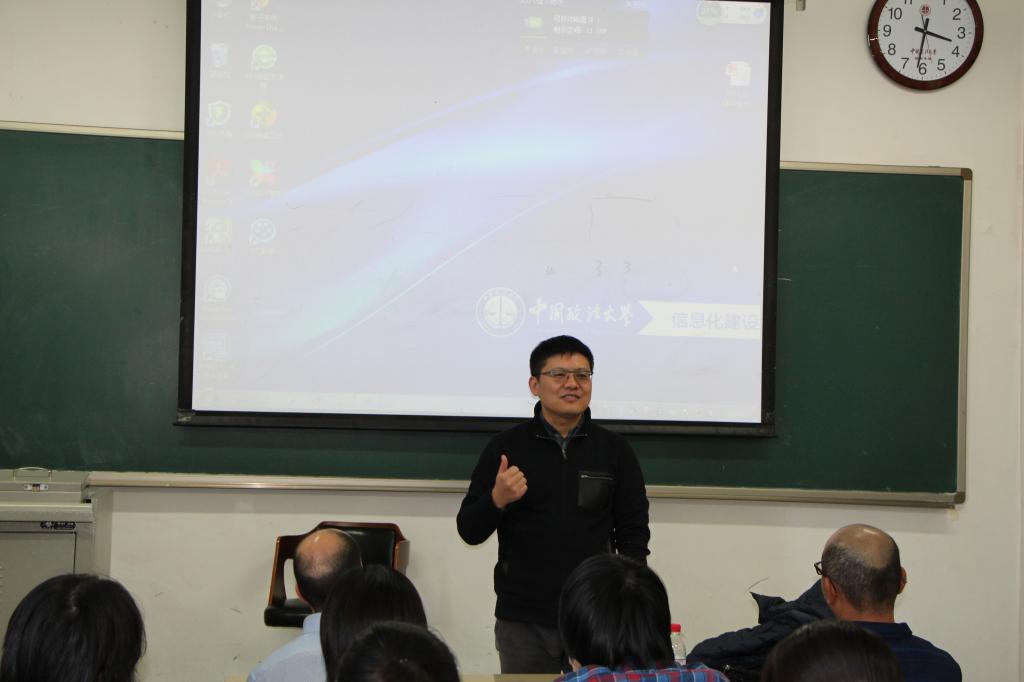On the afternoon of November 28, 2017, Dr. Aaron Halegua, a researcher at the American Institute of Asian Law at New York University and a lawyer and consultant at the Center for Labor and Employment Law, was invited by professor Liu Xiaonan of Institute for Human Rights and gave a lecture named American anti-discrimination law: legislation, case and mechanism. Dr. Lu Jiefeng, a lecturer at the University of International Business and Economics, and Dr. Zhu Tonghui, associate professor of law school of NanKai University, were also invited.

Dr. Aaron Halegua, who has a deep insight into the anti-discrimination field in the United States, holds a Ph.D. in law from Harvard University, a bachelor's degree in international relations from Brown University. His main areas of research include labour and employment law, dispute resolution, corporate social responsibility, and legal aid. Because of previous rich experience of academics and lawyers, Dr. Aaron Halegua named "U.S. Anti-Discrimination Law: Legislation, Precedent and Mechanism" as the topic of this lecture.
First of all, Dr. Aaron Halegua gave a detailed account of the legislation in the field of anti-discrimination in the United States, including the legislative purpose and object of Anti-discrimination Law, the distribution of the burden of proof on discrimination, Title 7 in the U.S. Civil Rights Act, the legislative exceptions and applicable situations of BFOQ, and through numerous precedents, Dr. Aaron Halegua triggered everyone's thinking.
Secondly, Dr. Lu Jiefeng gave a concrete analysis of the background of the Title 7 Code of Civil Rights Act and the BFOQ's burden of proof. And supported Dr. Aaron Halegua's notion that "not all discrimination is discrimination".
Finally, Dr. Zhu Tonghui summarized the lecture from the aspects of the development of Criminal Procedure Law and Anti-discrimination Law. Dr. Zhu put forward some new ideas on the burden of proof in the field of anti-discrimination. Dr. Zhu hoped that the burden of proof in the area of anti-discrimination will be more carefully and reasonably divided.


At the end of the lecture, students asked many questions about discrimination and Dr. Aaron Halegua answered the questions one by one. Three hours of talks ended in a relaxed atmosphere.